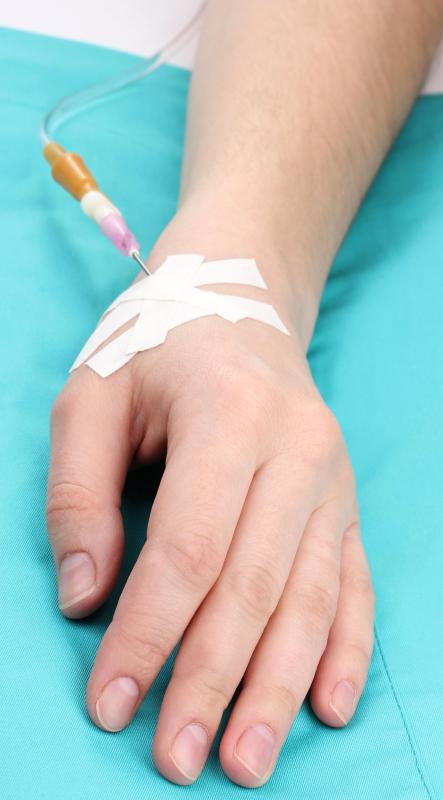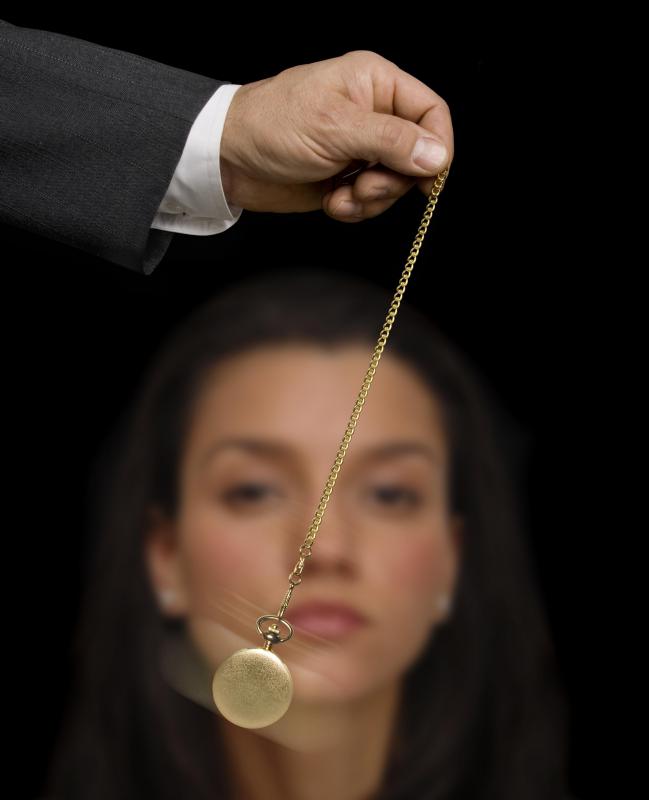At TheHealthBoard, we're committed to delivering accurate, trustworthy information. Our expert-authored content is rigorously fact-checked and sourced from credible authorities. Discover how we uphold the highest standards in providing you with reliable knowledge.
What is Aichmophobia?
Aichmophobia is the fear of needles. This very common phobia is also known as trypanophonia, enetophobia, or simply needle phobia, and it affects a very large segment of the population. Some people opt not to seek treatment for their phobia, simply coping when they are exposed to needles for various procedures, while others choose to seek out aichmophobia help from a psychological professional. For people who do want to defeat this phobia, there are a number of treatment options which can be used.
Many phobias arise in response to some sort of trauma, and aichmophobia is no exception, but it can also be caused by an inherited reflex. Some people appear to be naturally jumpy or nervous around needles, whether or not they have been traumatized, and this phobia can also be linked with a fear of restraint or control issues. In other instances, a trauma such as a painful injection or a needlestick incident causes aichmophobia to develop.

Because this phobia is so widespread, many people view it with acceptance, especially medical professionals, who are very used to dealing with needle phobias. In people who have developed aichmophobia in response to trauma, symptoms like trembling, faintness, shortness of breath, nausea, dry mouth, and sweating can arise when a needle is taken out. In people with an inherited reflex, exposure to needles can lead to fainting or severe panic attacks.

Individuals with aichmophobia tend to avoid circumstances in which they will be exposed to needles. This can lead to problems, as people may be reluctant to seek out medical treatment because they are afraid of the needles which might be used. Finding an understanding medical provider can help people cope with mild aichmophobia, especially when this phobia is accompanied with a fear of medical procedures in general. Other patients may prefer to seek treatment so that they can take control of their phobia.

Aichmophobia treatment is usually accomplished with desensitization, a series of therapeutic sessions in which the patient is exposed to needles under the supervision of a psychologist. The intensity of each experience will be scaled up, until the patient is comfortable with injections and blood draws. Psychiatric drugs may be used to manage severe aichmophobic responses, and patients may also benefit from hypnosis, talk therapy, and other therapeutic treatments.
Patients with aichmophobia should not be afraid to inform medical providers. Doctors and nurses prefer to be aware of the problem, so that they can take precautions to make a procedure involving a needle more comfortable for the patient.
AS FEATURED ON:
AS FEATURED ON:
















Discussion Comments
The thing is, millhouse, I have it myself. Call it irrational, but I have the freaking worst fear of it, even if I know it won't hurt. I look the other way, but still, I get nervous. I think it's the mere idea of waiting to have something stuck into your body or something.
You don't understand, most people do look away but the thought of it piercing your flesh becomes overwhelming. If looking away was a solution then this phobia wouldn't exist today, but it's not that easy.
I don't understand why aichmophobic people can't just look the other way. I realize that this might sound ignorant, and show my perhaps fundamental misunderstanding of a phobia which is an *irrational* fear, but the peculiar thing with a fear of needles is that you don't have to watch it coming, whereas say a fear of spiders, you can't control....
Post your comments